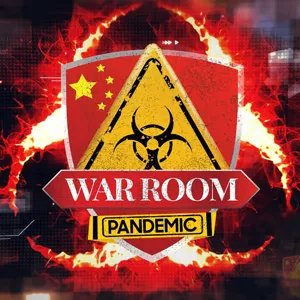By REPPARE at Brownstone dot org.
Introduction
The global health world is struggling. For the past two and a half decades, it has been based on a model of ever-growing funding, channelled from the taxpayers and investors of wealthy countries, through intermediary organizations mostly staffed from the same countries to recipient nations who have far lower income and limited health infrastructure.
This model has saved lives, yet it has also built dependency both from the health systems of recipient countries and from the army of salaried bureaucrats and non-government organizations, which have prospered from its largesse. The United States government's abrupt defunding of the world's largest aid agency, USAID, and its cut in support to the World Health Organization and GAVI (The Vaccine Alliance) have sent shockwaves through the global health world.
Most response is highly negative. Former USAID administrator Samantha Power recently told CNN that the gutting of USAID, resulting in cutting "life-saving programs," could cause millions of deaths globally. The message was clear - the West African Ebola outbreak was resolved thanks to USAID help, thus protecting Americans from Ebola. Further, potentially millions of children would die from malaria because USAID is not saving them.
The compere seems clear that a halving of child mortality in recent years is due to foreign money, particularly that of USAID and Mr Bill Gates, while 25 million lives have been saved from HIV by US government funding.
A recent Opinion in the science journal PLOS Global Public Health reflects the same sentiment. Ooms et al. call 'upon the international community to protect the global responses to HIV, TB and malaria' in the face of recent funding cuts by the United States (US).
The authors argue that other countries must make up the shortfall, particularly for the 2027- 2029 replenishment cycle of the Global Fund to Fight AIDS, Malaria and Tuberculosis (GFATM), since the GFATM is highly dependent on US funding. To support this rallying call, the authors argue that HIV/AIDS, malaria, and tuberculosis are 'global health security threats' that require continued collective action. 'Undermining such collective action,' they argue, 'makes the world less safe for everyone.'
HIV/AIDS, malaria, and tuberculosis remain the three biggest communicable diseases, killing millions of people annually with significant socioeconomic impacts, and there is no doubt that Western money has, and is, reducing their harm. Moreover, aid policy priorities should be fastened to the greatest disease burdens, such as these. They also need to be promoting locally owned, contextualised, effective, efficient, and equitable responses.
Promoting the building of local and national capacity and sustainability.
This is where the concern lies. If, as is claimed, withdrawal of support now will have such rapid and devastating impacts, then for decades while commodities have been purchased and delivered, capacity to manage disease burden at a local and national level has clearly not been built. The model, while good at patching holes, remains extremely fragile.
Simply seeking to direct the same money into more of the same, after more than two decades of doing the same, indicates a failed international health model. Perpetual dependency is inequitable. As we argue below, claims of gains in health security of the donor nation(s) are also based on shaky ground.
Health Security from What?
Ooms et al.
argue, and Samantha Power implies, that inaction on outbreak detection and suppression of HIV/AIDS, malaria, and tuberculosis 'makes the world less safe for everyone.' This statement mirrors another popular phrase within the global pandemic prevention, preparedness, and response (PPPR) lexicon; namely that 'no one is safe until everyone is safe.' Statements such as these are purposefully highly securitised and emotive, cultivating collective interest via a direct appeal for one's
self-preservation.
Yet,...





 View all episodes
View all episodes


 By Brownstone Institute
By Brownstone Institute



















